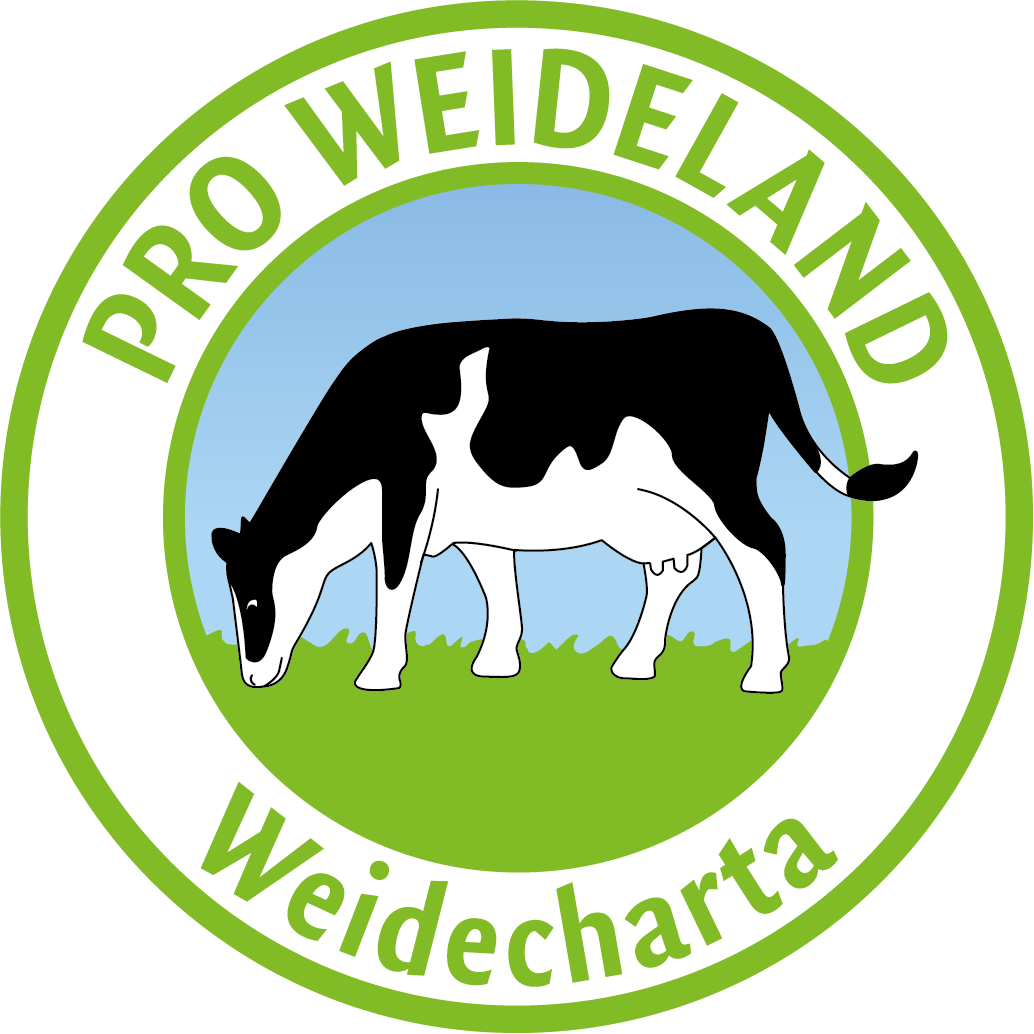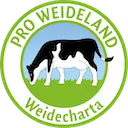FAQ
Do you have questions for or about PRO WEIDELAND? Maybe the answer you are looking for is right here. If not, please don’t hesitate to contact us.
An open and transparent communication is most important for us at PRO WEIDELAND.
Questions about PRO WEIDELAND
Questions about grazing in general
How long has PRO WEIDELAND Weidecharta been in existence?
- Our Weidecharta was signed by all parties in Aurich, a town nestled in the East Frisian countryside, in autumn 2015. The framework conditions and criteria were agreed upon on 31 May 2016.
- The marketing of PRO WEIDELAND milk began with spring turnout on the farm of Dirk Hanken in Elsfleth on 23 April 2017.
Who is behind the charter?
40 organisations (see Supporters) from the fields of agriculture, business, environmental protection, nature conservation, consumer protection and animal welfare have already signed up. More organisations will follow.
How is the grazing period recorded/documented?
The grazing period is documented in a grazing calendar. The grazing calendar must be kept up to date (no more than one day behind on a standard, announced inspection).
How does a PRO WEIDELAND audit work?
Audits of PRO WEIDELAND dairy farms are carried out regularly by accredited companies with certified auditors. These auditors are guided by a set of criteria. These criteria are grouped into various inspection categories, which are outlined below:
- Inspection category 1: criteria concerning grazing and the grazing period
- Inspection category 2: criteria concerning the feeding area on the pasture
- Inspection category 3:resources criteria concerning animal welfare, animal protection, animal health
- Inspection category 4: criteria concerning the protection of natural
- Inspection category 5: criteria concerning GMO-free feeding
By means of targeted questioning of farmers, an inspection of the relevant farm documents and an on-site audit of the conditions at the farm and on the pastures, the auditors verify whether the criteria for PRO WEIDELAND milk are being met.
How often are PRO WEIDELAND audits carried out?
A PRO WEIDELAND audit will be carried out annually by the dairy concerned. This will be supplemented by audits carried out by certified inspectors every three years (plus any follow-up inspections). Grünlandzentrum also reserves the right to accompany the auditors on external audits.
Which dairies produce with the PRO WEIDELAND label?
- Molkerei Ammerland
- Gropper
- FrieslandCampina
- Arla
- NordseeMilch
Why is pasture farming good for the environment?
As a multifunctional part of our man-made landscape, pasture needs to be protected. What’s more, biodiverse biotopes can be preserved in the process. The increased biodiversity represents a genuine ecological gain. Overall, the existence of pasture has many other positive effects in terms of environmental protection, animal welfare and biodiversity.
Is pasture farming worthwhile for farmers?
The aim is to make the grazing of pastures economically attractive by ensuring that farms are remunerated for the additional expense involved. This approach is effective, because consumers recognise the value added by this type of agriculture and are therefore willing to pay more for the products.
When does grazing take place?
In terms of the programme, the grazing period starts on 01 April and runs until 31 October of each calendar year.
Why doesn’t grazing take place all year round?
The farmers involved in the pasture milk programme ensure that their dairy cows spend a sufficient amount of time out of their stalls and on the pasture during the grazing season. Standards in the area of animal welfare and animal health (such as the avoidance of heat stress) are adhered to in full. Irrespective of the grazing system employed, farmers use their specialist expertise to decide, to the best of their knowledge and in good faith, when the animals can and should be allowed to graze and during which periods.
This ability to adapt to regional factors is a unique characteristic of northern German dairy farm systems and makes it possible to optimise this land-based farming method. During the grazing season, grazing must be as extensive as possible, paying due regard to individual and local factors applicable to the farm concerned. Depending on weather conditions, the number of grazing days and the grazing period may exhibit annual fluctuations.

